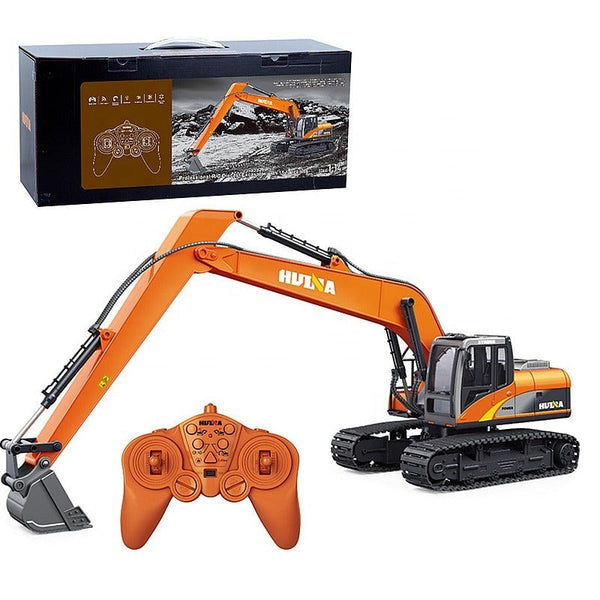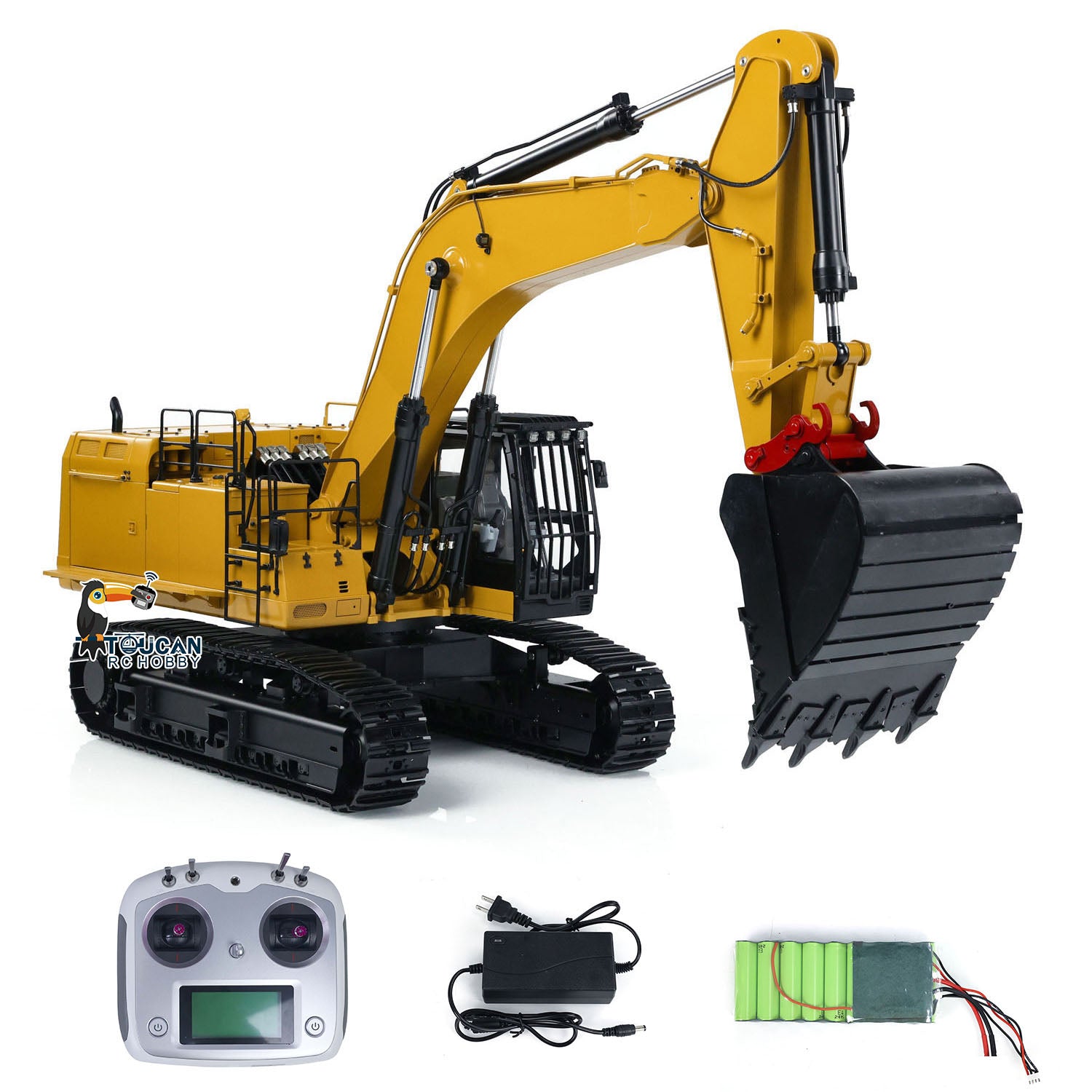Discover the Significance of Excavator in Modern Building Projects
Excavators are crucial tools in modern construction jobs. Their versatility allows them to carry out a wide variety of tasks, from digging and grading to demolition and website preparation. Advanced features, such as hydraulic accessories and general practitioners, enhance their abilities and efficiency on job sites. As the market progresses, the value of excavators grows even extra. Comprehending their function can expose insights into the future of building techniques. What exists in advance for these machines?
The Flexibility of Excavators in Different Projects
Although excavators are frequently connected with large-scale building jobs, their versatility allows them to be utilized in a vast array of applications, from residential landscaping to energy upkeep. In urban setups, excavators can browse tight areas to dig foundations for homes or mount water drainage systems. Their ability to execute fragile tasks makes them suitable for landscaping projects, where they can dig deep into for fish ponds or plant trees. Furthermore, excavators play a vital function in utility upkeep, effectively excavating trenches for pipes or wires without disrupting surrounding areas. In farming applications, they assist in land clearing and soil prep work. Their adaptability enables them to be furnished with various accessories, boosting their performance throughout various jobs. This diverse nature of excavators not just improves various building and construction processes yet likewise shows their essential function in modern-day infrastructure advancement and upkeep.
Key Functions and Sorts Of Excavators
The discussion on essential functions and kinds of excavators highlights the vital attributes that make these devices vital in construction. Various excavator types, each created for specific tasks, show their flexibility and efficiency throughout different applications. rc excavator. Understanding these features and categories is crucial for optimizing their usage in modern-day construction tasks
Excavator Types Introduction
Excavators play a crucial duty in modern construction, providing convenience and efficiency across various tasks. These heavy machinery systems can be found in numerous types, each customized for certain applications. One of the most typical kinds consist of crawler excavators, known for their stability on uneven terrain, and wheeled excavators, which provide better wheelchair on paved surface areas. Tiny excavators are preferred for limited areas and small-scale projects, while long-reach excavators are developed for deep digging. Additionally, there are specialized excavators, such as hydraulic excavators, which enhance power and accuracy. Each type features special capacities, making them important for tasks varying from excavating and grading to demolition and product handling. Recognizing these variations enables building and construction specialists to select the ideal excavator for their project requires.
Secret Includes Explained
Understanding the essential functions of excavators improves their efficient application in construction tasks. Excavators are characterized by their effective hydraulic systems, which give the required pressure for excavating, lifting, and relocating products. Their expressed arms enable a wide variety of motion, assisting in specific operations in constrained rooms. Furthermore, the variety of add-ons, such as containers, grapples, and augers, increases their adaptability to satisfy various job demands. The dimension and weight of excavators likewise add to their stability and maneuverability on various terrains. Moreover, innovations in innovation have resulted in the integration of general practitioner and automation, boosting accuracy and performance in excavation tasks. These functions collectively place excavators as crucial tools in contemporary building and construction.
Applications in Construction
Transforming construction sites, excavators play a crucial function throughout various applications, varying from domestic building projects to massive infrastructure advancements. These versatile equipments are furnished for jobs such as excavating structures, trenching for energies, and website grading. Different kinds of excavators, consisting of spider, wheeled, and mini excavators, offer details benefits customized to the task needs. Crawler excavators master rough terrains, while wheeled excavators provide wheelchair on smooth surface areas. Miniature excavators are ideal for restricted areas, making them prominent in metropolitan settings. The effectiveness and power of excavators significantly quicken construction processes, making sure prompt job conclusion. Their versatility further enhances their significance, enabling construction groups to deal with a diverse array of challenges efficiently.
Enhancing Effectiveness and Productivity on Task Sites
Making best use of performance and efficiency on work websites is an essential purpose in contemporary construction. Excavators play a crucial function in achieving this objective by streamlining numerous jobs. Their ability to execute multiple features-- such as grading, lifting, and excavating-- reduces the demand for additional tools, consequently saving time and resources.Moreover, excavators improve process by enabling for faster completion of projects. With innovative functions like hydraulic attachments and general practitioners innovation, they can implement specific operations that decrease errors and revamp. This precision not just boosts the top quality of work however likewise maximizes material usage, adding to cost savings.The versatility of excavators enables them to adjust to various site conditions, making certain that jobs proceed efficiently no matter obstacles. By integrating excavators right into building and construction procedures, groups can greatly enhance their general performance, bring about prompt task completion and increased earnings.
Safety Benefits of Using Excavators
Excavators considerably boost safety on construction websites via boosted driver visibility and decreased hand-operated labor risks. By providing operators with a clear sight of their environments, excavators assist to protect against injuries and mishaps. In addition, the equipment minimizes the need for workers to take part in harmful hands-on tasks, better advertising a more secure workplace.
Enhanced Operator Visibility
Building sites can be disorderly and filled up with prospective risks, enhanced driver visibility plays a necessary duty in ensuring security when utilizing excavators. Modern excavators are created with big, unblocked windows and purposefully positioned mirrors, enabling operators to keep a clear sight of their surroundings (rc excavator). This boosted visibility is vital for spotting pedestrians, various other equipment, and different obstacles, considerably lowering the danger of accidents. Additionally, many excavators incorporate innovative technology, such as cams and sensing units, to give operators with additional perspectives, additionally boosting recognition. The capability to see even more plainly not just help in reliable procedure but additionally cultivates a more secure workplace, making it much easier for drivers to navigate complex building and construction websites without compromising security standards
Minimized Manual Work Dangers
When manual work is reduced with the usage of excavators, countless safety benefits emerge, noticeably improving the well-being of building and construction workers. Excavators reduce the physical stress associated with hefty training and recurring jobs, effectively reducing the risk of bone and joint injuries. By automating processes such as digging, grading, and relocating materials, they permit employees to maintain a more secure distance from potential risks. Additionally, excavators are equipped with innovative safety attributes, such as rollover security systems and improved operator functional designs, which better secure workers on website. The result is a substantial decrease in workplace accidents and injuries, bring about increased productivity and spirits among construction groups. Ultimately, the fostering of excavators adds to a much safer and a lot more reliable building and construction environment.
Excavators in Earthmoving and Website Prep Work
In contemporary building and construction, a significant section of earthmoving and site prep work tasks depends on the efficiency and versatility of excavators. These devices are created to handle numerous soil kinds and terrain, making them crucial for grading, digging, and trenching activities. Their hydraulic arms can be furnished with different attachments, such as containers and augers, permitting operators to tailor their approach based upon certain project requirements.Excavators excel at relocating huge volumes of earth promptly and effectively, which speeds up the general building timeline. They can browse tight areas and challenging sites where typical tools might struggle, improving performance. In addition, the accuracy of excavators assurances that site prep work sticks to rigorous requirements, decreasing the threat of errors that can result in pricey rework.
The Function of Excavators in Demolition Tasks
Excavators play an essential role in demolition tasks, as they have the power and agility needed to take apart structures efficiently. Equipped with different accessories such as hydraulic breakers, shears, and grapples, these devices can adapt to different demolition requirements, whether for small structures or big commercial websites. Their adaptability enables operators to tackle intricate projects while maintaining security and precision.In enhancement to their demolition capabilities, excavators assist in debris elimination, guaranteeing that work websites remain risk-free and well organized. helpful hints By breaking down frameworks into convenient items, they enable streamlined cleaning and recycling of materials, lining up with modern sustainability efforts.Moreover, excavators can access tight areas and navigate uneven terrain, making them crucial in city demolition projects. On site web the whole, their durable layout and multifunctionality make excavators a vital possession in the demolition phase of building, adding substantially to job timelines and effectiveness.


Future Patterns in Excavator Modern Technology and Use
As the construction sector progresses, developments in excavator innovation are positioned to change their use and performance noticeably. One substantial fad is the integration of automation and expert system, allowing excavators to run with minimal human treatment. This shift will certainly improve precision in tasks such as grading and trenching, lowering human mistake and increasing productivity.Additionally, the increase of electric and hybrid excavators is forming an extra sustainable building and construction atmosphere, decreasing carbon emissions and fuel expenses. Boosted telematics systems are also emerging, making it possible for real-time tracking of machine efficiency and maintenance demands, which can result in much better functional performance and longer devices lifespan.Moreover, innovations in attachment innovation are expanding the convenience of excavators, enabling them to carry out a more comprehensive array of jobs. The mix of these trends demonstrates a future where excavators are smarter, greener, and much more adaptable, inevitably reshaping building job characteristics.
Often Asked Questions
Exactly How Do Excavators Compare to Various Other Building Equipment?
Excavators, defined by their adaptability and power, master excavating and earthmoving contrasted to other equipment. Their ability to do numerous tasks, consisting of training and demolition, makes them crucial in building and construction projects, improving overall performance.

What Is the Typical Life Expectancy of an Excavator?
The typical life expectancy of an excavator generally ranges from 7,000 to 10,000 operating hours, depending upon maintenance, usage problems, and version. Correct care can prolong this life-span, guaranteeing peak efficiency throughout its operational years.
Just How Are Excavators Kept for Ideal Performance?
Excavators need normal upkeep for peak efficiency, including regular assessments, fluid checks, filter replacements, and prompt fixings. Carrying out a preventive upkeep routine helps extend their lifespan and warranties reliable procedure in different building and construction settings.
What Are the Costs Related To Getting an excavator vs. renting out?
The expenses connected with renting versus purchasing an excavator vary considerably. Renting offers reduced upfront expenditures however can accumulate gradually, while acquiring requires a considerable initial financial investment, yet provides lasting savings and possession possession advantages.
What Training Is Needed to Operate an Excavator?
Running an excavator calls for specialized training, commonly including safety procedures, device operation methods, and environmental awareness. see this website Accreditation programs frequently mandate sensible experience, allowing operators to handle various tasks effectively while guaranteeing conformity with market laws. The most usual types include crawler excavators, recognized for their security on uneven surface, and wheeled excavators, which offer higher movement on paved surfaces. Miniature excavators are preferred for small jobs and tight spaces, while long-reach excavators are made for deep digging. Additionally, there are specialized excavators, such as hydraulic excavators, which improve power and accuracy. Different types of excavators, including spider, wheeled, and mini excavators, offer details benefits customized to the job requirements. Crawler excavators excel in harsh surfaces, while rolled excavators use mobility on smooth surfaces.